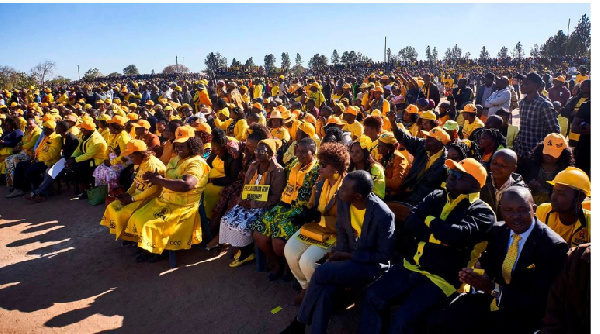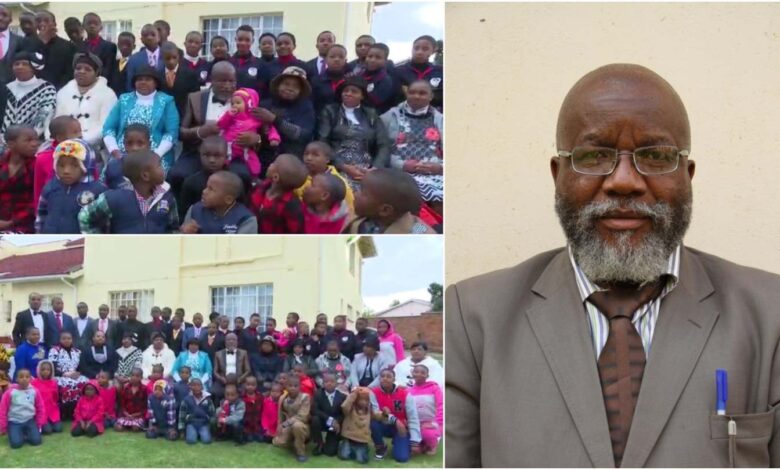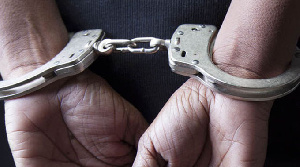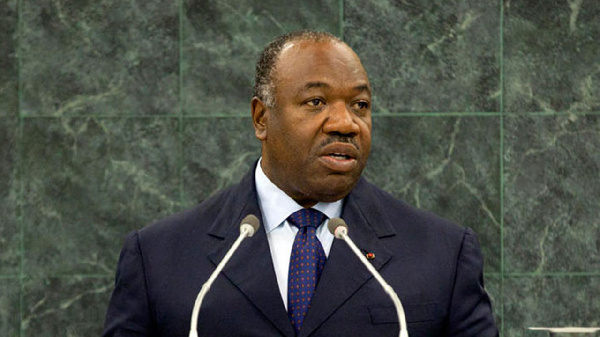Zimbabwe’s new elections facing familiar old fears

Zimbabweans head for elections on August 23 amid heightened fears of another disputed result.
The fears are based on a crackdown on the opposition by President Emmerson Mnangagwa’s regime and perennial complaints about an uneven playing field by the electoral commission.
President Mnangagwa is seeking a second full term in office after rising to power through a military coup that toppled strongman Robert Mugabe six years ago.
The 80-year-old ruler’s post-coup promises of a “new kind of democracy” in Zimbabwe, after the late Mr Mugabe’s nearly four decades of authoritarian rule, have gone up in smoke in the past five years.
Most of the promised reforms have not been delivered.
Instead, President Mnangagwa’s government has been introducing laws that observers say are meant to close the democratic space.
One of the president’s signature laws during the first term is the Patriotic Act, which imposes the death penalty on Zimbabweans who are deemed to be unpatriotic.
The outgoing Parliament that is dominated by the ruling Zanu-PF party also passed the Private Voluntary Organisations Amendment Bill, which would restrict operations of civil society organisations.
United Nations experts early this year described the law that would bar civil society organisations from participating in politics as draconian and urged President Mnangagwa not to approve it.
Dozens of government critics have been jailed, including lawmaker Job Sikhala, who was arrested over a year ago for speaking on behalf of the family of a slain activist.
Opposition leader Jacob Ngarivhume was this year sentenced to nearly four years in jail for mobilising peaceful protests.
Ahead of Wednesday’s presidential, parliamentary and local government elections, police banned at least 100 rallies planned by incumbent’s main challenger Nelson Chamisa’s Citizens for Coalition for Change (CCC) party.
Mr Chamisa was forced to form CCC last year after he was controversially pushed out of the MDC Alliance through a controversial court judgment.
His new party went on to win 18 of the 29 parliamentary by-elections that were called a month after its formation.
The opposition has, however, encountered controversial court judgments, a clampdown by security forces and a cut in government funding.
A string of controversial court cases against the independent electoral commission, which is accused of being biased towards the ruling party, has also marred the pre-election environment.
One of the high-profile court cases saw a Mugabe-era minister, Saviour Kasukuwere, being barred from the presidential race because he has been out of the country for more than 18 months.
Mr Kasukuwere, who was the last Zanu-PF political commissar for Mr Mugabe, said the election had become too tainted to produce a credible outcome.
“An extremely important national event has been damaged by constitutional delinquents and infantile antics,” the former minister said.
“The damage to the collective interests of Zimbabweans is incalculable. This election is a nullity.”
Nicolas Delaunay, an expert from the International Crisis Group, observed that the elections have been tilted in favour of the ruling party through the use of various unorthodox means, including intimidation of voters.
“Despite assurances from Mnangagwa that the vote will be free and fair, a number of government actions have once again tilted the balance heavily in favour of the ruling party, the Zimbabwe African National Union-Patriotic Front (Zanu PF),” Mr Delaunay wrote in the brief titled: What to expect from Zimbabwe’s tilted polls.
“These include crackdowns on the opposition and arrests of its supporters; the delimitation of constituencies by the electoral commission in a manner that favours the ruling party; and measures limiting the opposition’s visibility in state media.
“With such steps, critics argue, Zanu PF aims to guarantee itself electoral victory while avoiding overt intervention during the actual balloting, when scrutiny of various kinds will be greater.”
The Fellowship of Christian Councils in Southern Africa (Foccisa), which represents churches from Angola, Botswana, Mozambique, Malawi, South Africa, Tanzania, Kenya, Namibia, Zambia, Lesotho and Zimbabwe, said it was worried that the pre-election environment has been marred by violence against opposition supporters and attacks on opposition gatherings.
“We are saddened by reports of the intimidation of citizens, the loss of innocent lives, and the destruction of property during the election campaigns especially unleashed against the opposition party gatherings,” Foccisa said.
“Against this background, we encourage the security forces to observe all due diligence as they carry out their duties before, during and after elections.
“The defence forces should remain impartial and not be seen to side with one political party over another.
“They should at all times protect and uphold the rule of law and abide by the election code of conduct.”
President Mnangagwa, who is also eyeing his last term in office, has to contend with 11 other candidates. But it is 45-year-old Chamisa, a pastor and lawyer, who is his toughest opponent.
In the last election, the incumbent narrowly beat his young rival. In fact, the outcome was heavily disputed.
Hope for reset
The president’s fortunes in the polls are stacked against a collapsing currency, rising inflation and international isolation while his rival is riding on promises of change.
A new survey by the Public Policy and Research Institute of Zimbabwe (PPPRIZ) says 77 percent of Zimbabweans want to see change on August 23.
According to the PPRIZ survey, “the majority of registered voters (67 percent) say they are most likely to vote in the forthcoming election, while nine percent say they will definitely note vote.”
“Of those, that are most likely to vote, more are from rural areas (53 percent) compared with 47 percent from urban areas,” it added.
For the presidency, a candidate must get 50 percent plus one vote for an outright victory and if there is no winner a run-off poll will be held by October 2.
Mr Delaunay from the Crisis Group said it was in President Mnangagwa’s interest that Zimbabwe runs a credible election.
“The 2023 elections certainly do not offer the same hope of a reset that the 2018 elections did,” he said.
“But Zimbabwean authorities should not underestimate the importance of ensuring that the election is conducted cleanly, without violence marring either the balloting or the aftermath.
Source: theeastafrican.co.ke





